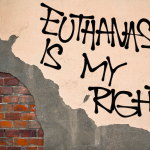New South Wales to Again Consider Voluntary Assisted-Dying Legislation

New South Wales Independent MP Alex Greenwich will be introducing new Voluntary Assisted Dying legislation to State Parliament, which is expected to be debated later this year.
The Sydney MP says it’s time for New South Wales to follow the lead of Western Australia and Victoria, both of whom passed similar legislation in recent years.
Queensland, Tasmania and South Australia are each also expected to pass legislation this year.
New South Wales certainly lags behind.
It will be the third time assisted voluntary assisted dying legislation has been debated in New South Wales Parliament, with bills being defeated previously in both 2013 and 2017. In 2017, the legislation failed to pass by just one vote.
And there are concerns the conservative-dominated parliament may once again deny those who are suffering from terminal illnesses the right to choose to have their lives ended.
The draft legislation
Mr Greenwich says the New South Wales draft legislation will be modelled on the legislation currently in force in Western Australia.
Under the Western Australian scheme, terminally ill adults in pain and likely to have less than six months to live – or one year if they have a neurodegenerative condition – will be able to take a drug to end their lives if approved by two medical practitioners.
Safeguards
It’s also expected that the legislation will include a number of safeguards to prevent misuse. In Victoria, new criminal offences were created to protect vulnerable people against abuse and coercion, and a special board to review all cases.
Doctors who ‘conscientiously object’ reserve the right not to help a patient to end his /her life.
Victoria’s Voluntary Assisted Dying laws have been working safely and effectively for more than 18 months, with 124 terminally ill Victorians choosing this compassionate, end of life option in the first year alone.
There’s no doubt this is a highly emotive issue, but it is also an important one. Anyone who has watched a loved one in the final stages of a terminal illness will attest to the fact that even with the best palliative care, many people suffer unbearably, with doctors simply unable to treat their pain.
The right to choose
As a result these people, having already endured the illness for some time, have only slow, agonising death to look forward to.
Legislation could prevent this, by allowing people to have a choice about how they end their lives. Without such legislation some attempt suicide, which isn’t always successful, or beg family and friends to help. But by assisting a death, these people then face the very real possibility of being charged with a serious criminal offence.
Shayne Higson, the Assistant President of Dying with Dignity NSW spent several months caring for her mother who was terminally ill with brain cancer, and watched her mother’s quality of life slowly deteriorate. But it was her final weeks that caused the most anguish.
Shayne says her mother’s condition got to the point where no amount of medication could control all the symptoms and pain, and that’s when she would plead with her daughter to end her suffering. Ms Higson says her inability to help her mother when she needed it most is a burden she carries to this day.
Around the world
Around the world, countries are passing similar legislation. Euthanasia is legal in Belgium, Luxembourg and the Netherlands. But assisted death and passive euthanasia – of various types – are legal in many more European countries.
New Zealand recently passed legislation and it will be made law this year.
Portugal passed legislation last year, to the surprise of many, given that around 80% of the population identifies as being of Catholic religion and euthanasia is against the philosophies of the church.
Those who oppose the legislation say that the issue can be resolved with more money spent on palliative care and does not carry the same risks of potential misuse, miss the point, which is that even the best doctors and facilities cannot always relieve a patient’s end of life suffering, and that drugging people so much that they’re comatose is not a humane solution.
On the other hand, Voluntary Assisted Dying laws instead give terminally ill people a dignified choice in a situation where they are already powerless under the duress of the illness.
The Australian Territories
According to the research, more than 80% of Australians support voluntary assisted dying. It’s time that New South Wales enacted laws in line with other states. It makes no sense that people in other states have the right to choose, and yet not here.
The ACT and the Northern Territory have a battle ahead if they want to introduce Assisted Dying Laws.
In 1995, the Northern Territory became the first place in the world to legalise voluntary euthanasia. But nine months later, the Commonwealth passed an inconsistent law which – due to the operation of section 109 of the Commonwealth Constitution – effectively defeated the attempts of both the NT and ACT to enable assisted dying.
Both jurisdictions are now exploring ways to circumvent the Commonwealth laws.







